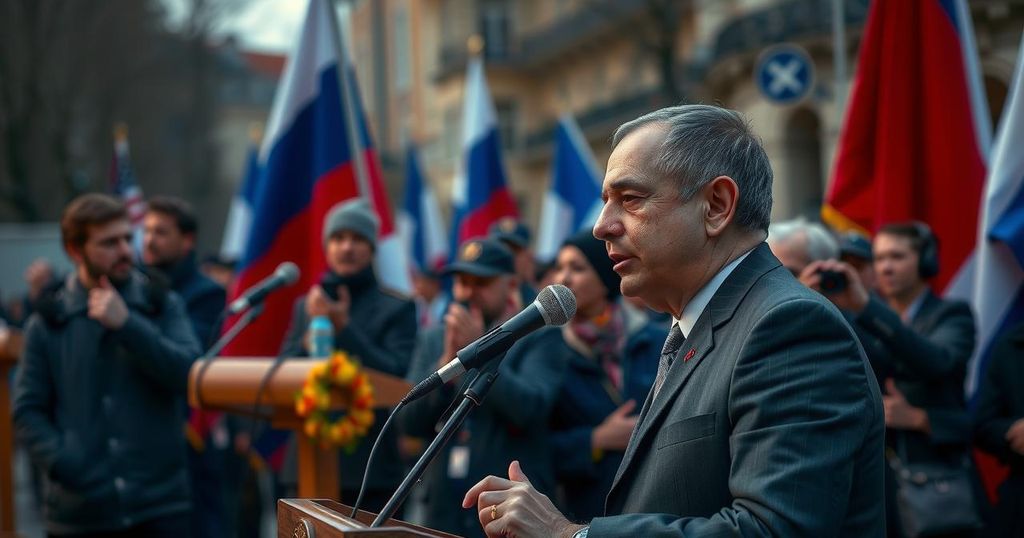Georgia’s President Stands Firm Amid Protests for New Elections

Georgian President Salome Zourabichvili is resisting calls for her resignation amid protests demanding new elections following allegations of fraud in recent parliamentary elections. As protests escalate, the ruling party’s legitimacy is questioned, and there are widespread calls for restoring the country’s European trajectory. The situation has drawn international attention and condemnation of police actions in response to demonstrators.
In Georgia, President Salome Zourabichvili has declared her intention to remain in office until new parliamentary elections are conducted, amidst escalating protests against the government’s suspension of European Union accession talks. Claiming that the current parliament is “illegitimate” due to electoral fraud allegations from last month’s elections, Zourabichvili stated her commitment to stability during this transitional period. Protests have intensified, with individuals demanding fresh elections in order to redirect the country’s trajectory toward Europe.
Riot police have surrounded the parliament in Tbilisi, utilizing water cannons and tear gas amid ongoing demonstrations that have persisted for several nights across various Georgian cities. Approximately 150 individuals were detained in connection with the November 29 protests, leading to tensions between protesters and law enforcement. Critics of the Georgian Dream party, which has been in power since 2012, argue that the administration seeks to abandon EU integration in favor of closer ties with Russia.
Additionally, civil servants and Georgian ambassadors to key European countries have resigned in protest against the government’s actions, while opposition parties have boycotted the newly elected parliament, alleging widespread electoral malpractice. The European Parliament has voiced concerns over the situation, attributing responsibility for the “worsening democratic crisis” to the ruling party. The Prime Minister indicated that the government would not prioritize discussions regarding EU membership until 2028, further igniting dissatisfaction among the populace.
Public outrage has prompted significant calls for reform, with protestors demanding free and unbiased media coverage. Writer and activist Lasha Bugadze emphasized the need for the public broadcaster to operate independently of governmental influence and disinformation. Statements from opposition coalitions have denounced the current administration as illegitimate, urging international oversight for any future elections. In light of these developments, U.S. officials have condemned the excessive use of force during protests and expressed support for Georgia’s European aspirations.
The current political climate in Georgia has been exacerbated by President Salome Zourabichvili’s decision to oppose the ruling Georgian Dream party’s electoral integrity following recent parliamentary elections. These elections have sparked accusations of vote rigging and concerns over the direction of the nation’s foreign policy, specifically regarding EU integration versus Russian influence. The protests represent a growing public discontent with the government’s actions and the perceived erosion of democratic principles in the region.
In summary, the political turmoil in Georgia has prompted President Zourabichvili to call for new elections amidst widespread protests against perceived electoral injustices and the suspension of EU negotiations. The government faces significant pressure from citizens and international observers alike, as calls for democratic reform and transparency continue to grow. The situation underscores the ongoing struggle between pro-Western aspirations and increasing Russian political influence.
Original Source: www.bbc.com








